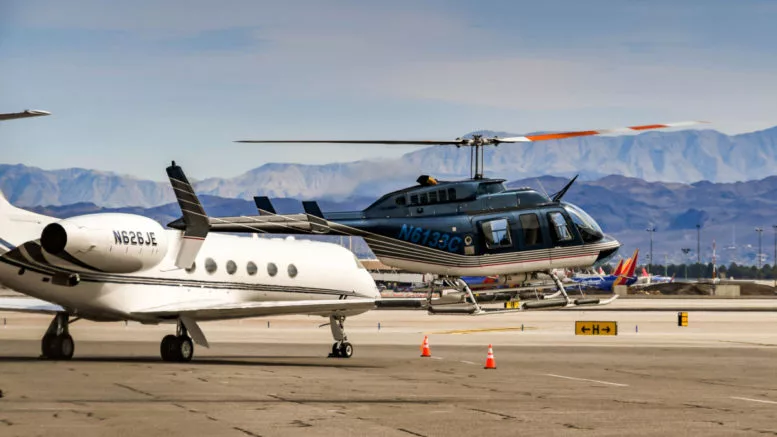The thrill of exploring new destinations often comes with the daunting prospect of air travel. For millions of individuals around the world, the fear of flying, known as flight anxiety or aviophobia, can turn what should be an exciting adventure into a terrifying ordeal. In this comprehensive guide, we will delve deep into the world of flight anxiety, exploring its origins, manifestations, and most importantly, effective strategies to conquer it. If you’ve ever experienced anxiety about flying or know someone who has, read on to discover how to soar above your fears and embrace air travel with confidence.
Understanding Flight Anxiety
What is Flight Anxiety?
Flight anxiety, also known as aviophobia, is an intense fear of flying, often accompanied by anxiety and panic attacks before, during, or after a flight. It can range from mild unease to debilitating terror, making it challenging for those affected to enjoy the benefits of air travel.
Prevalence and Who It Affects
Flight anxiety is more common than you might think. Studies estimate that approximately 25% of people experience some form of flight anxiety. This fear knows no boundaries, affecting individuals of all ages and backgrounds.
Causes of Flight Anxiety
To effectively combat flight anxiety, it’s essential to understand its underlying causes. Common triggers include fear of crashing, claustrophobia, fear of heights, a lack of control, and past traumatic experiences.
Symptoms of Flight Anxiety
Physical Symptoms
Flight anxiety can manifest in various physical symptoms, including a racing heartbeat, profuse sweating, trembling, nausea, dizziness, shortness of breath, and even full-blown panic attacks. Recognizing these physical symptoms is crucial for managing anxiety during a flight.
Psychological Symptoms
Psychological symptoms of flight anxiety include excessive worry, irrational fears, intrusive thoughts, and a sense of impending doom. These mental symptoms can intensify overall anxiety.
Behavioral Symptoms
Individuals with flight anxiety may exhibit behavioral symptoms, such as avoiding air travel altogether, using excessive alcohol or drugs to cope, or seeking constant reassurance from others. Identifying these behaviors is vital for addressing the issue.
Consequences of Untreated Flight Anxiety
Limitations on Travel
Untreated flight anxiety can significantly limit an individual’s ability to explore the world. Missed vacations, family gatherings, and business opportunities can take a toll on emotional and professional well-being.
Impact on Mental Health
Flight anxiety left untreated can lead to the development of other mental health issues, such as generalized anxiety disorder or panic disorder. It can also result in social isolation and a reduced quality of life.
Strain on Relationships
Flight anxiety doesn’t just affect the person experiencing it. It can also strain relationships, as loved ones may need to make sacrifices or cope with frustration when the person with anxiety avoids flying.
Strategies to Overcome Flight Anxiety
Preparation is Key
Thorough preparation is one of the most effective ways to combat flight anxiety. This includes learning about the flight process, understanding safety measures, and having a plan to manage anxiety triggers.
Cognitive Behavioral Therapy (CBT)
CBT is a highly effective form of therapy for addressing flight anxiety. It helps individuals identify and change negative thought patterns and behaviors associated with their fear of flying.
Medication Options
In some cases, medication can be prescribed to help manage the symptoms of flight anxiety. It’s essential to consult a healthcare professional before considering this option.
Relaxation Techniques
Practicing relaxation techniques, such as deep breathing exercises, meditation, and progressive muscle relaxation, can help calm anxiety both before and during a flight.
Facing Your Fears: Exposure Therapy
Exposure therapy involves gradually exposing oneself to feared situations, in this case, flying, in a controlled and supportive environment. It can be a highly effective way to desensitize the fear response.
Professional Help and Support Groups
Seeking help from a therapist or joining a support group for individuals with flight anxiety can provide valuable guidance, support, and a sense of community.
Tips for a Calmer Flight Experience
Choosing the Right Seat
Selecting the right seat on the plane, such as an aisle seat or one closer to the front, can help individuals with flight anxiety feel more in control and comfortable.
Entertainment and Distractions
Bringing entertainment like books, movies, or music can distract from anxious thoughts and make the flight experience more enjoyable.
Mindful Breathing and Meditation
Practicing mindfulness and deep breathing techniques during a flight can help reduce anxiety and promote relaxation.
Managing In-Flight Turbulence
Understanding turbulence and how it is a normal part of flying can help alleviate anxiety when encountering rough air.
Staying Hydrated and Avoiding Alcohol and Caffeine
Hydration and avoiding alcohol and caffeine can help regulate mood and reduce anxiety during a flight.
Real-Life Success Stories
Personal Experiences
Sharing personal success stories of individuals who have overcome their flight anxiety can provide inspiration and motivation for those still struggling.
How Others Overcame Flight Anxiety
Highlighting various strategies and techniques that have worked for others can offer practical advice and hope to those seeking solutions.
Conclusion
The Power of Overcoming Flight Anxiety
Conquering flight anxiety can be a life-changing experience, opening up a world of travel and adventure that was previously off-limits.In conclusion, flight anxiety is a common and treatable condition that should not prevent anyone from experiencing the joys of air travel. With the right knowledge, preparation, and support, individuals can overcome their fear of flying and embark on exciting journeys with confidence and ease. So, don’t let flight anxiety hold you back—soar above your fears and embrace the world of travel with open arms.
Ready to Soar with Us?

